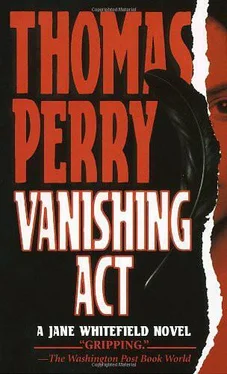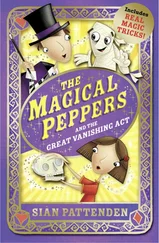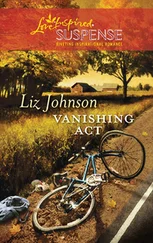"The reason I decided to be an accountant was that I liked math. I was good at it, and accounting sounded like a sensible thing to do with as little math as I knew. But what I really would have liked to be was a teacher."
She looked at him judiciously. The most common reason police officers gave for getting into it was that they wanted to help people. When they found themselves dragging their hundredth bloody suspect into the emergency room, some of them decided that wasn’t the way. "It’s kind of a lousy time in history to become a teacher. Real ones are getting laid off all over the place. Of course, math teachers are always hard to come by."
"I thought about it a lot last night. I don’t want to spend the rest of my life just hiding. If I live to be ninety, what do I say to myself—that I lived to be ninety?"
"Keep talking," she said. "I’m just thinking about it."
"It’s average, right? A nice job, but not high-profile. The outsiders you meet are mostly parents." He looked at her hopefully for a moment.
"Maybe," she said. "What sort of education do you have?"
"That’s a problem. I dropped out of college in my freshman year. The draft board was after me, so I figured I’d get the army out of the way. Then, after I quit the force, I got a B.S. in accounting at night."
Jane paced back and forth for a few minutes. "The more I think about it, the better I like it." She stopped and studied him. "You’re sure about this?"
"Yes."
"All right, then. You’re going to need to spend some more time in a college. That’s fine, because colleges are a great place to get lost if you know what you’re doing. You’re too old to be anything else but a guy who’s starting a second career, so we need an excuse."
"How about the truth? I was a cop who wanted to be a teacher."
"No. In that environment, the cop part would make people curious. You have to throw away something or be one of a kind. Losing your B.S. in accounting would cost you years. You were something else, and you were laid off. What kind of job could you have done with your credentials that wouldn’t bring you into contact with companies like Smithson-Brownlow?"
"A lot of things. All big corporations have accounting departments. Aerospace?"
"No, not a big company. There are too many ways to approach a big company and ask about you. We need a small company, so if somebody wants to get in touch with them, there’s only one number to call."
"Uhhh ... stores, banks, insurance agencies ..."
"Banks. You worked for a small bank and it went out of business. It’s boring and there’s nothing you have to explain. It happens all the time. You apply to get into a teacher-credential program. You have an accounting degree—not the real one, of course—and you want to major in math."
"Everything I do creates obstacles. A fake degree, fake jobs..."
"I told you to forget about the paper. That’s the easy part."
They spent the day talking about his new career and developing memories for him to take with him into it. The next morning, when he got up and came into the kitchen, she was there waiting. "You’re up early," he said.
"We have a lot of work to do." She had torn herself out of the dream this time and found it was five o’clock. She had decided it was better not to go back to sleep because the dream was waiting in the back of her mind.
She went to the counter and picked up a 35 millimeter camera. "I dug up Jimmy’s camera. We’re going to take your picture. That wall over there with the reflected light on it looks the best. We’ll do the first few standing up."
He slowly walked to the wall. "Why?"
"Driver’s license, et cetera." She aimed at him and said, "Smile," then lowered the camera. "That’s a smile?"
"I don’t know a whole lot about this, at least from the fugitive’s point of view," he said. "But doesn’t it strike you as a little dangerous to have pictures of me floating around?"
"Trust me," said Jane. "The people who will see the prints would die if any pictures got into the wrong hands."
"They would, eh?" He looked at her skeptically, his eyes half closed. She clicked the camera. "You took one already?"
"That was your driver’s license. Everybody looks that way on their driver’s license—like they just ate a worm."
He smiled and the camera clicked again. "Hey," he said. "What was that?"
"I don’t know. Maybe the bank’s Christmas party."
"I wasn’t ready."
"Then they’ll paste you in with your arm around the boss’s wife, like you got caught." When he didn’t smile, she said, "Stop worrying. They only need a couple of prints. You and I can burn the rest of them together."
"The negatives?"
"Those too. Now go find a nice shirt and tie in Jimmy’s closet and put your coat on over it."
When she had taken all thirty-six exposures, Jane said, "I’ll be back in a couple of hours with the prints. If anybody comes to the door, let him in and be nice."
She removed the roll of film, put on a jacket that belonged to Jimmy, and walked outside. He looked out the window and watched her making her way across the cornfield to Mattie’s house.
She returned before the two hours were up. She had a blue envelope with the negatives and glossy prints inside. Felker spread them out on the table and looked at them one by one.
"Thirty-three," he said.
"I mailed three of them to the specialist. Next time you see them, they’ll be glued to some official paper."
"Why three?"
"Have you ever seen anybody with the same picture on everything?"
He gathered the photographs and put the envelope into his pocket. "What now?"
"Now we wait, and we work to get you ready."
That day they walked along the banks of the Grand River and up country roads past small farms and through woods. Always they talked.
"It’s time to use our imaginations," she said. "Think like a cop. The person you’re looking for is you. The fugitive has a false name and false papers, and he’s starting a new life. Where do you start?"
"Put out a circular with everything we know about him: his description, picture, habits."
"Very good," said Jane. "Who does it go to?"
"Everybody."
"Bad answer, but at least you’re thinking like a cop again. It goes to police stations. That’s not everybody. Nobody ever sees these things except other policemen. What’s the moral of the story?"
"Stay away from cops?"
"Right. There are ways to do that. The obvious one is to watch out how you drive. You’re never again going to be in enough of a hurry to speed or double-park. But you don’t go where trouble is, either."
"That much I know," he said.
"What do you do if you’re walking down the street and a man tries to pick a fight with you?"
"Walk away."
"What if he doesn’t let you walk away?"
"Call for help?"
"Think harder. This shouldn’t be news to you," she said. "You obviously haven’t called for help much. Nobody jumps in, but sometimes they call the police. The safest thing for you to do is put him down fast, immobilize him, then get out. The people who couldn’t pull themselves together enough to stop him won’t be any better at stopping you."
"I guess that’s true."
"Suppose you come home from work and find out you have a burglary?"
"That one I’ve thought about. I don’t call the cops. The fingerprint people will take prints from all the surfaces, and they’ll need to take mine to be sure which ones belong to the burglars."
"Very good. But what if you’re home when it happens? You’re asleep in bed and you hear them breaking in?"
"Same thing. Let them take what they want and go."
She shook her head. "No, I’m afraid that’s the exception. There are very few burglars who don’t case a place to see who lives there before they decide. There are almost none who can’t tell if somebody’s home before they break in. So what you’ll have is an intruder who knows who you are and that you haven’t gone out."
Читать дальше












